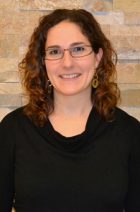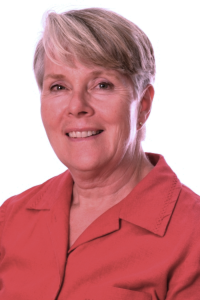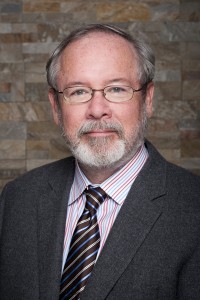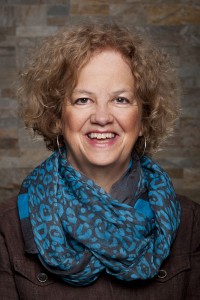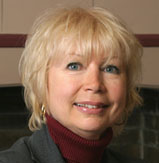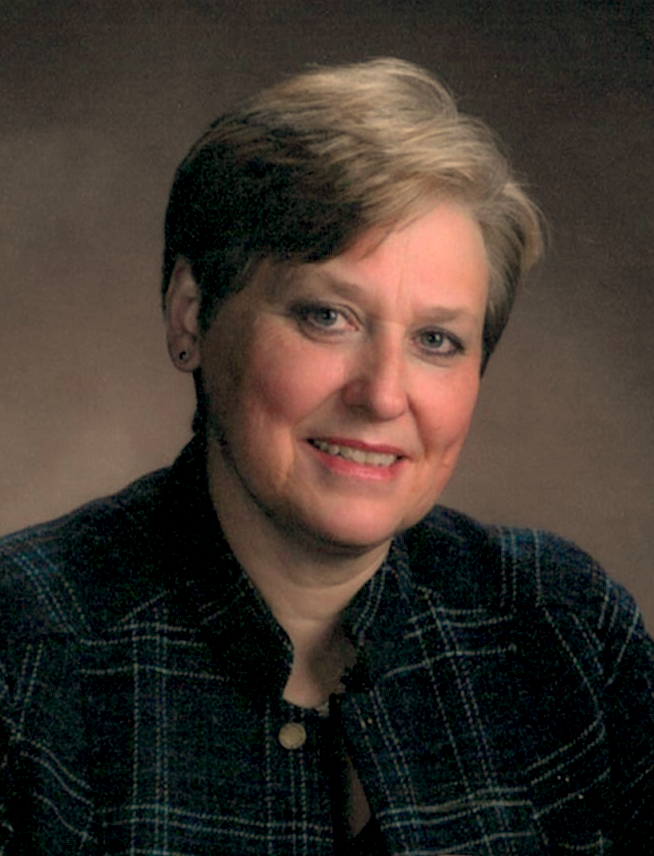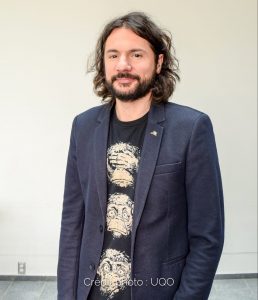Marie-Hélène Brunet is an assistant Professor of social studies and history education at the Faculty of Education at the University of Ottawa since August 2018. Previously, she held a teaching position (LTA). Her doctoral dissertation (University of Montreal) focused on the understanding of women’s history by Quebec high school students. She also holds a master’s degree in history through which she became interested in motherhood outside marriage at the time of the Quiet Revolution in Quebec. She is interested in history education as well as the history of education and the history of women and gender. Her current research focuses on the understanding of historical agency by elementary and secondary school teachers and students, through various teaching tools (narratives, textbooks, historical films, video games, children’s literature, etc.) as well as on the teaching of sensitive questions and power relations (language, race, class, gender, etc.) in history classrooms.
Selected Publications:
- Brunet, M. H., & Heap, R. (2019). Rédaction du numéro spécial de la Revue d’éducation. Genre et récit, 6(1).
- Brunet, M. H., Demers, S. (2018). Déconstruire le manuel d’histoire pour (re)construire des savoirs plus justes: Récit de pratique en formation initiale et continue des enseignantes et des enseignants. Recherches féministes, 31(1), 123-140.
- Brunet, M. H. (2018). Les femmes canadiennes dans les récits scolaires et dans la mémoire collective, rétrospective des recherches depuis. Revue d’histoire de l’éducation 30(1), 42-53.
- Brunet, M. H. (2017). Des histoires du passé: Le féminisme dans les manuels d’histoire et d’éducation à la citoyenneté selon des élèves québécois de quatrième secondaire. Revue des sciences de l’éducation de McGill, 52(2), 409-432.
Sharon Anne Cook is a Distinguished University Professor and Professor Emerita in the Faculty of Education, University of Ottawa. She has authored ten books and co-edited one. Her latest book is Sharon Anne Cook, A History of the Faculty of Education, University of Ottawa, 1875 – 2015. Ottawa: Baico Publishing, 2017. 290 pp. She currently completing a book manuscript, The Castleton Murders: Femicide in Rural Ontario. Author or co-author of nineteen book chapters and twenty-five refereed articles, she has served as co-editor of four special journal issues. She researches and writes in the areas of educational history, women’s health history, Civic, Peace and Global Education, Temperance and Evangelicalism, the teaching of history and teachers’ professional development. She has been honoured with the following awards: the Canadian Association for the Foundations of Education Distinguished Service Award (2015); the Canadian History of Education Association / L’Association canadienne d’histoire de l’éducation Distinguished Contribution Award (2012); the Canadian Association for the Study of Women in Education Achievement Award (2012); University of Ottawa Distinguished University Professor Award (2010); the Ontario Confederation of University Faculty Associations Academic Teaching Award (2006-7); the University of Ottawa Award for Excellence in Teaching (2006-7); University of Ottawa Excellence in Education Prize (2005-6) among others.
Selected Publications:
- Cook, S. A. (2018). A history of the faculty of education, University of Ottawa, 1875 – 2015. Baico Publishing.
- Cook, S. A. (2018). “Who do you think you are?” Feminist change in post-secondary education, an uneven record. In D. Wallin & J. Wallace (Eds.), Transforming Conversations Feminism and Education in Canada since 1970 (pp. 22-41). McGill-Queens University Press.
- Lewellyn, K., & Cook, S. A. (2017). Oral History as Peace Pedagogy. In K. Llewellyn & N. Ng-A-Fook (Eds.), Oral History and Education: Theories, Dilemmas, and Practices (pp. 17-41). Palgrave Macmillan Press.
- Cook, S. A. (2012). Sex, lies and cigarettes: Canadian women, smoking and visual culture, 1880-2008. McGill-Queens University Press.
Nicholas Ng-A-Fook is a Full Professor and Vice-Dean of Graduate Studies. He is the former Director of the Teacher Education and Indigenous Teacher Education Programs at the Faculty of Education. He is actively engaged in addressing the 94 Calls to Action put forth by the Truth and Reconciliation Commission, in partnership with local Indigenous and school board communities. His teaching and research are situated within the wider international field of curriculum studies and life writing research. Dr. Ng-A-Fook is currently part of several federally funded SSHRC partnership grants that seek to disrupt settler colonialism, systemic racisms, and inequities across the school and university curriculum. He is interested in collaborating with graduate students who are committed as Indigenous and non-Indigenous citizens toward challenging ongoing systemic inequities. He created the FooknConversation podcast to address these challenges with colleagues, community activists, artists, educational leaders, teachers, and politicians.
Selected Publications:
- Brant, K., Ng-A-Fook, N., & Llewellyn, K. (2020). Restorying settler teacher education: Truth, reconciliation, and oral history. In N. Ng-A-Fook & K. Llewellyn (Eds.), Storying historical consciousness in times of reconciliation: Oral history, public education, and culture of redress. Routledge.
- Hébert, C., Ng-A-Fook, N., Ibrahim, A., & Smith, B. (Eds.). (2019). Internationalizing curriculum studies: Histories, environments, and critiques. Palgrave Macmillan.
- Smith, B., Ng-A-Fook, N., & Radford, L. (Eds.). (2018). Hacking education in a digital age: Teacher education, curriculum, and literacies. Information Age Publishing Inc.
- Llewellyn, K. R., & Ng-A-Fook, N. (Eds.). (2017). Oral history and education: Theories, dilemmas, and practices. Palgrave Macmillan.
Timothy J. Stanley is an award-winning historian of racisms and of Chinese Canadian experience. Contesting White Supremacy: School Segregation, Anti-racism and the Making of Chinese Canadians (2011) drew on Chinese as well as English language sources to win the Clio Prize for British Columbia of the Canadian Historical Association and the Founders’ Prize of the Canadian History of Education Association. A theorist of anti-essentialist antiracism, his research is informed by over forty years of experience in antiracism education during which time he has taught antiracism to groups ranging from high school students to the general staff of the Canadian Army. His current research examines the linkages between forms of historical memory, lived histories of racist exclusion and contemporary racisms. He has supervised 22 graduate theses (14 PhD) and one postdoctoral fellow and has been a committee member or examiner for another 43 theses.
Currently Professor Emeritus, Faculty of Education and Faculty of Arts, University of Ottawa, he was previously Interim Dean and Vice-Dean of the Faculty of Graduate and Postdoctoral Studies, and Vice-Dean Programs of the Faculty of Education. In 2019 as the Interim Director of the Institute of Canadian and Aboriginal Studies, he founded the Institute of Indigenous Research and Studies.
Selected Publications:
- Stanley, T. J. (2020). Witnessing exclusion: Oral histories, historical provenance and antiracism education. In K. Llewellyn & N. Ng-A-Fook (Eds.), Oral history, education, and justice: The possibilities and limitations for redress and reconciliation. Routledge.
- Stanley, T. J. (2017). Kishizo Kimura and the articulations of a society structured in dominance. In J. Stanger-Ross & P. Sugiman (Eds.), Witness of loss: Race, culpability and memory in the dispossession of Japanese Canadians. McGill-Queen’s University Press.
- Stanley, T. J. (2016). The strong poetry of Won Alexander Cumyow: Rethinking narratives of connection across time and place. In N. Ng-A-Food, A. Ibrahim, & G. Reis (Eds.), Provoking curriculum studies: Strong poets and the arts of the possible. Routledge.
- Stanley, T. J. (2016). John A. Macdonald, “the Chinese” and racist state formation in Canada. Journal of Critical Race Inquiry, 3(1).
Stéphane Lévesque is an Associate professor of history education and Director of the Virtual History Lab (VH Lab) at the Faculty of Education, University of Ottawa. In the Fall of 2011, he was visiting professor of digital history at Umea University in Sweden. His research focuses on students’ historical thinking and consciousness, Canadian history, citizenship education, and new media and technology in education. In the early spring of 2011, Dr. Lévesque opened the Virtual Historian Laboratory (VH Lab). Funded by CFI, this is the first research centre in Canada to study the on-line learning of history. Innovative approaches, such as eye-tracking analysis, are used to study the methods and quality of virtual learning, to clarify the needs of on-line learners, and to develop the models and contexts that lead to improving the design, presentation and evaluation of web sites, simulations and learning materials in history classrooms. Through ongoing research and the development of partnerships with the Research Unit “Faire l’histoire: Making History: Narratives and Collective Memory in Education”, the Centre de recherche en civilisation canadienne-française and Canadian museums, the VH lab uses cutting-edge technology to study user behaviour, to improve learning and evaluation and ultimately to enhance the teaching of history through information and communication technologies in education. Recent research projects include “The Virtual Historian: Digital History in the Canadian Classroom” (www.virtualhistorian.ca) funded by the Western Innovation Fund and the Faculty of Education Media and Information Services at the University of Western Ontario – Phase II (VH 2.0 version) is now available development with funding from CFI and support from the University of Ottawa; “Historical Literacy and Digital Technology” funded by the Canadian Council on Learning; and “Canadian and US Students’ Historical Learning with Technology,” a SSHRC funded comparative study. Dr. Lévesque is very active in the national history community. He is a Board member of the Virtual Museum of Canada, the Canada’s History Society, and The History Education Research Network/Histoire et éducation en réseau (THEN/HiER), past advisory board member of the Historica Foundation, past president of the Citizenship Education Research Network and co-chair of the Teaching History interest group of the American Educational Research Association. Dr. Lévesque served as educational expert for the Advisory committee on the establishment of the Canadian Museum for Human Rights as well as curriculum expert for the Ontario Ministry of Education on the revision of the Canadian and World Studies curriculum. In 2006, he was nominated by the Council of Ontario Universities for the Award for Excellence in Teaching with technology
Selected Publications:
- Lévesque, S., & Croteau, J. P. (2020). Beyond History for Historical Consciousness: Students, Narrative, and Memory. University of Toronto Press.
- Lévesque, S., & Croteau, J. P. (in press) L’avenir du passé: identité, mémoire et récits de la jeunesse québécoise et franco-ontarienne. Ottawa, Presses de l’Université d’Ottawa.
- Lévesque, S. (2017). History as a ‘GPS’: On the uses of historical narrative for French Canadian students’ life orientation and identity. London Review of Education, 15(2), 227-242.
- Lévesque, S., & Zanazanian, P. (2015). Developing historical consciousness and a community of history practitioners: A survey of prospective history teachers across Canada. McGill Journal of Education, 50(2/3), 389-412.
Lorna McLean est professor in the Faculty of Education and Director of the ERU, University of Ottawa; Professor McLean’s research interests include historical representations of citizenship and global citizenship education, gender, peace education, and pedagogy for teaching history.
Selected Publications:
- McLean, L. & Cook, S. (forthcoming, 2020). Historically invisible: The women’s international league for peace and freedom, 1914-1919. In S. Barker, G. Donaghy & J. Campbell-Miller (Eds.), Breaking barriers, shaping worlds: Women and the search for global order, 1919-2019. Vancouver: UBC Press.
- McLean, L. & Baroud, J. (2019). Democracy needs education: Performance, peace and pedagogy, Julia Grace Wales. International Journal of the History of Education, 1-17.
- McLean, L., Cook, S., Levesque, S., Stanley, T. with editorial assistance by Rogers, P. & Baroud, J. (2017). Special capsule on historical consciousness. Canadian Journal of Education, 40(1), 170.
- McCallum C. & McLean, L. (2016). Raising the Allumettières (Matchworkers) in Sites of Collective Remembering. Journal of the Canadian Association of Curriculum Studies 14, 2, 66-85.
Ruby Heap is a Full Professorof Canadian Social History and the History of Education at the University of Ottawa in the Department of History, Faculty of Arts. She is currently Associate Vice-President, Research. She also held the position of vice-dean for multidisciplinary programs at the Faculty of Graduate and Postdoctoral Studies, and, in this capacity, she was responsible for the creation of new programs as well as the evaluation of all programs in graduate studies at the University of Ottawa. She was also the founding director of the Institute of Women’s Studies and served on numerous external review committees, including the Social Sciences and Humanities Research Council of Canada. She was named professor of the year at the Faculty of Arts in 2007.
One of Canada’s foremost feminist historian, Dr Heap has published extensively on women’s history, the history of education, the origins of professions in Canada, as well as women in science and engineering. Her publications have appeared in a number of collections as well as in leading journals such as the Canadian Historical Journal, Recherches Féministes, History of Education Quarterly and the Bulletin canadien d’histoire de la médecine. She is the recipient of a Fullbright Fellowship and the collection “Gender and Education in Ontario: A Historical Reader,” which she co-authored in 1992, won the Founders Award of the Canadian History of Education Association for best publication in the history of education in Canada, 1990-1992.
Selected Publications:
- Heap, R, (forthcoming, 2021). Annie Lewisa Laird. Dictionary of Canadian Biography.
- Denis, A., & Heap, R. (2019). Less of a minority in university education in engineering? An intersectional analysis of female and male students in Canada. International Journal of Gender, Science and Technology, 11(1), 41-54.
- Heap, R. (2019). Still an uncharted territory: Learning and writing about the lives of Canadian women in STEM through autobiography. Education Review, 6(1), 36-39.
- Cook, S. A., Heap, R., & McLean, L. (2018). The writing of women into Canadian educational history in English Canada and Francophone Quebec, 1970 to 1995. Historical Studies in Education, 30(1), 9-23.
Cynthia Wallace-Casey is an adjunct Professor in the Faculty of Education, University of Ottawa; her masters thesis (University of New Brunswick), entitled “Providential Openings,” was a case study of women weavers in 19th century New Brunswick, which pieced together the (then) unrecognised contribution of female home workers to the economy of a rural community. Her doctoral dissertation (University of New Brunswick) focussed on community-based learning in a history museum, and was recognised with a Canadian Association of Foundations in Education (CAFE-ACÉFÉ) Outstanding Dissertation Award in 2016. Professor Wallace-Casey has completed a SSHRC postdoctoral research fellowship at the University of Ottawa, and is currently involved in several SSHRC funded research initiatives, including “Military service, citizenship, & political culture: Militia studies in Atlantic Canada 1700 – 2000”, and “Tangible pasts, national narratives, and difficult knowledge: Linking history education with historical thinking in museums (a Dutch case study)”. Her research interests include Historical Thinking, national narratives, difficult histories, and Reconciliation in museums. She has more than 20 years of experience in the field of public history and community museums – a sector in which she continues to volunteer in several capacities. Her teaching expertise is in Historical Thinking at both Intermediate and Senior levels.
Selected Publications:
- Wallace-Casey, C. (2019). ‘I want to remember’: Student narratives and Canada’s History Hall. International Journal on Research in History Didactics, 40, 181-200.
- Wallace-Casey, C. (2018). Constructing patriotism: How Canada’s History Hall has evolved over 50 years. History Education Research Journal, 15(2), 292-307.
- Wallace-Casey, C. (2017). De-constructing cabinets of curiosity: Learning to think historically in community history museums. Sense Publishers.
- Wallace-Casey, C. (2017). “I like to take everything and put it in my own words”: Historical consciousness, historical thinking, and learning with community history museums. The Canadian Journal of Education, 40(1), 1-27.
 Chad Gaffield is University Research Chair in Digital Scholarship and Distinguished University Professor, University of Ottawa. With a focus on 19th and 20th century Canada, Gaffield’s publications report results from digitally-enabled research on the changing historical context of official language identifications, on childhood and family history, on socio-economic change in the Ottawa Valley, and on computer applications in History. Gaffield’s current teaching and research examine the making of the Digital Age with specific reference to the participation of academics, most notably historians. He served as President of the Federation of the Humanities and Social Sciences (1996-1998), the Canadian Historical Association (2000-2001), the Social Sciences and Humanities Research Council of Canada (2006-2014), and the Royal Society of Canada (2017-2019). Gaffield received the RSC’s J.B. Tyrrell Historical Medal (2002), the Province of Ontario’s Prix de la francophonie (2007), the international Alliance of Digital Humanities Organisations’ Antonio Zampolli Prize (2011), and he was appointed Officer of the Order of Canada in 2017.
Chad Gaffield is University Research Chair in Digital Scholarship and Distinguished University Professor, University of Ottawa. With a focus on 19th and 20th century Canada, Gaffield’s publications report results from digitally-enabled research on the changing historical context of official language identifications, on childhood and family history, on socio-economic change in the Ottawa Valley, and on computer applications in History. Gaffield’s current teaching and research examine the making of the Digital Age with specific reference to the participation of academics, most notably historians. He served as President of the Federation of the Humanities and Social Sciences (1996-1998), the Canadian Historical Association (2000-2001), the Social Sciences and Humanities Research Council of Canada (2006-2014), and the Royal Society of Canada (2017-2019). Gaffield received the RSC’s J.B. Tyrrell Historical Medal (2002), the Province of Ontario’s Prix de la francophonie (2007), the international Alliance of Digital Humanities Organisations’ Antonio Zampolli Prize (2011), and he was appointed Officer of the Order of Canada in 2017.
Heather E. McGregor is active in the fields of Arctic and Indigenous education, historical thinking and historical consciousness in history education, and most recently, environmental and climate change education. Whatever her focus, Dr. McGregor maintains a commitment to, and curiosity about, decolonizing approaches to teaching, learning and research. In 2010 her Masters research was published as a historical monograph by UBC Press, entitled Inuit Education and Schools in the Eastern Arctic. In 2015, Heather completed her PhD in Curriculum Studies at the University of British Columbia, and she went on to complete a 2-year Postdoctoral Fellowship in the Faculty of Education, University of Ottawa. Heather brings experience writing history curriculum, teaching resources and professional development materials. She has published her SSHRC-funded research in a range of history and education journals, both in Canada and internationally. In 2020, Dr. McGregor received two grants to support her new research stream History Education in the Anthropocene. Other current funded research projects on which she collaborates include: Thinking Historically for Canada’s Future (P.I. Carla Peck, UofA, SSHRC-funded through 2026), and Effective teachers for successful students: An investigation of the preparation and resiliency of Northern educators (P.I. Ruth Kane, UofO and Kathy Snow, UPEI, Arctic-Net funded through 2022).
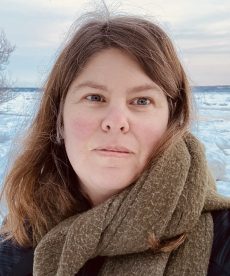
Catherine Duquette is an Associate Professor of Social Studies and History Education in the Department of Education at the Université du Québec à Chicoutimi (UQAC). She is a member of the “Centre de recherche inter-universitaire sur la formation et la profession enseignante (CRIFPE)”. She is a member of the UNESCO Chair for “la transmission culturelle chez les Premiers peuples comme dynamique de mieux-être et d’empowerment” lead by UQAC’s professor Élisabeth Kaine. She has published several journal articles and book chapters about historical thinking, historical consciousness and the role of assessment in history education in French and in English. Her current research interests include progression models for historical thinking, the impact of provincial examination for history education and the question of assessment. Over the last five years, Catherine (Cate) has worked with the PEI and New Brunswick ministry of education (francophone division) providing professional development for the high school social studies teachers. She was a member of the consultation committee for the Quebec Ministry of Education’s reform of the history of Quebec and Canada curriculum. She teaches the annual Historical Thinking Institute organized by the professor Lindsay Gibson and she has partnered with Canada’s National History Society.
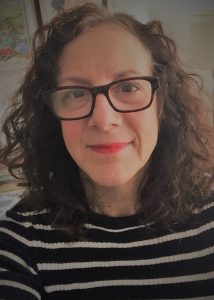 Dr. Rose Fine-Meyer is a Senior Lecturer in the Masters of Teaching (MT) program at OISE, University of Toronto. Her academic training is in the history of curriculum and history education (PhD 2012) focusing on women as political and educational actors in history curriculum and pedagogy during the twentieth century. Current publications focus on the precariousness of women’s voices within school history curricula in Ontario and social studies/ history teacher pedagogical practices with place/space based learning. Drawing on histories of colonialism, identity, and collective memory, her current research, supported by a SFRG OISE grant, also explores public history education and digital media, engaging graduate students in community partnerships to initiate change. Working with educators across Canada, she recently completed work as historical editor for a series of history textbooks in Nova Scotia (2021). On a community level, she takes on a number of roles: as President of the Ontario Heritage Fairs Association (OHFA), as executive member of the Ontario Women’s History Network (OWHN) and is a recipient of several awards, such as co-founder of HerstoriesCafe (2012), The Queen Elizabeth II Diamond Jubilee Medal (2012) and the Governor General’s Award for Excellence in Teaching Canadian History (2007).
Dr. Rose Fine-Meyer is a Senior Lecturer in the Masters of Teaching (MT) program at OISE, University of Toronto. Her academic training is in the history of curriculum and history education (PhD 2012) focusing on women as political and educational actors in history curriculum and pedagogy during the twentieth century. Current publications focus on the precariousness of women’s voices within school history curricula in Ontario and social studies/ history teacher pedagogical practices with place/space based learning. Drawing on histories of colonialism, identity, and collective memory, her current research, supported by a SFRG OISE grant, also explores public history education and digital media, engaging graduate students in community partnerships to initiate change. Working with educators across Canada, she recently completed work as historical editor for a series of history textbooks in Nova Scotia (2021). On a community level, she takes on a number of roles: as President of the Ontario Heritage Fairs Association (OHFA), as executive member of the Ontario Women’s History Network (OWHN) and is a recipient of several awards, such as co-founder of HerstoriesCafe (2012), The Queen Elizabeth II Diamond Jubilee Medal (2012) and the Governor General’s Award for Excellence in Teaching Canadian History (2007).
Vincent Boutonnet is a professor of didactics of the humanities at the Université du Québec en Outaouais since May 2013. He is interested in the epistemological progression of future history teachers during internships (research funded by the FRQSC), but also in the practices of teachers of humanities and social sciences as well as their use of resources such as textbooks, iconographic documents or digital documents. He also analyzes cultural products such as historical films and video games (research funded by SSHRC). He collaborates in various subsidized teams on citizenship education (DiSEC group) as well as on the use of manuals and digital technology. He has been part of the Center de Recherche Interuniversitaire sur la Formation et la Profession Enseignante (CRIFPE) as an associate researcher since the fall of 2013. He actively participates in the « regroupement de l’UQO ».
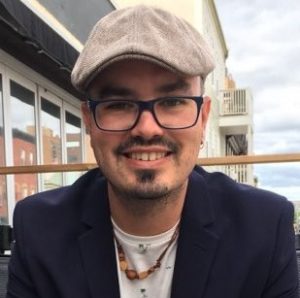 Dr. Mark T. S. Currie is a SSHRC-funded Post-Doctoral Fellow (2022-2024) and Instructor at the School of Indigenous and Canadian Studies at Carleton Univeristy. Mark is a settler South African-Canadian, born and raised on traditional Haudenosaunee territory in Aylmer, Ontario, and now living on traditional Algonquin territory in Ottawa, Ontario. His post-doctoral research focuses on small-town communities in southern Ontario and investigates whether community members remember and/or see racism occurring in the town; if they see their town as an antiracist community; and how Whiteness is maintained or disrupted in the memories and perceptions of the town. Mark’s overall aim is to seek out possibilities for combatting banal racisms by addressing social memory and readings of sociohistorical geographies through antiracist approaches in History and Social Studies education. This post-doctoral research builds on Mark’s PhD in Education, which focused on sociohistorical geographies and enacting antiracisms. His doctoral research examined how the Ontario Black History Society’s walking tour in downtown Toronto acts as an educational tool for engaging and (re)shaping sociohistorical spaces as antiracist geographies. As a part-time professor at University of Ottawa and the Ontario Institute for Studies in Education, he has taught courses in teacher education on History and Social Studies education teaching methods. Mark holds a Master of Arts in Island Studies from the University of Prince Edward Island, for which he investigated postcolonial education and cultural identity on the Caribbean island of Dominica. He also achieved a Master of Teaching from Griffith University, for which he conducted action research on in-class student motivation in a secondary school in Cape Town, South Africa.
Dr. Mark T. S. Currie is a SSHRC-funded Post-Doctoral Fellow (2022-2024) and Instructor at the School of Indigenous and Canadian Studies at Carleton Univeristy. Mark is a settler South African-Canadian, born and raised on traditional Haudenosaunee territory in Aylmer, Ontario, and now living on traditional Algonquin territory in Ottawa, Ontario. His post-doctoral research focuses on small-town communities in southern Ontario and investigates whether community members remember and/or see racism occurring in the town; if they see their town as an antiracist community; and how Whiteness is maintained or disrupted in the memories and perceptions of the town. Mark’s overall aim is to seek out possibilities for combatting banal racisms by addressing social memory and readings of sociohistorical geographies through antiracist approaches in History and Social Studies education. This post-doctoral research builds on Mark’s PhD in Education, which focused on sociohistorical geographies and enacting antiracisms. His doctoral research examined how the Ontario Black History Society’s walking tour in downtown Toronto acts as an educational tool for engaging and (re)shaping sociohistorical spaces as antiracist geographies. As a part-time professor at University of Ottawa and the Ontario Institute for Studies in Education, he has taught courses in teacher education on History and Social Studies education teaching methods. Mark holds a Master of Arts in Island Studies from the University of Prince Edward Island, for which he investigated postcolonial education and cultural identity on the Caribbean island of Dominica. He also achieved a Master of Teaching from Griffith University, for which he conducted action research on in-class student motivation in a secondary school in Cape Town, South Africa.
Selected Publications:
- Currie, M. T. S., Drake, A. S., & Ng-A-Fook, N. (2021). Is CRRP enough? Addressing antiracism(s) in teacher education. Journal of the American Association for the Advancement of Curriculum Studies, 14(2). https://ojs.library.ubc.ca/index.php/ jaaacs/article/view/196263/191431
- Brunet, M-H., & Currie, M. T. S. (2021). A collaborative autoethnography on tackling sociohistorical constructions of gender in teacher education. The Councilor: A Journal of the Social Studies, 0(1), Article 9.
- Currie, M. T. S. (2021). Reflecting on rollerblading over the past: A deconstruction of a banal sociohistorical city space. Journal of the Canadian Association for Curriculum Studies, 18(2), 199–211.
- Currie, M. T. S. (2020). The ‘other’ here and the ‘other’ there: Encountering the (re)(de)construction of my racialized and (trans)national identities. Cultural and Pedagogical Inquiry, 12(2), 27–38.
Associated Members
Associate Professor in the Department of Social Development Studies, University of Waterloo; Professor Llewellyn’s research interests include the history of education, oral history, women’s history, and the social studies curriculum.
Selected Publications:
- Llewellyn, K & Ng-A-Fook, N. (Eds.). (2019). Oral History, Education, and Justice: Limitations and Possibilities for Redress and Reconciliation. New York, NY: Routledge.
- Llewellyn, K. & Ng-A-Fook, N. (Eds.). (2017). Oral History and Education: Theories, Dilemmas, and Practices. New York, NY: Palgrave Macmillan. [Awarded the Canadian Oral History Association Prize for 2018.]
- Llewellyn, K., Freund, A., and Reilly, N. (Eds.). (2015). The Canadian Oral History Reader. Montreal-Kingston, ON: McGill-Queen’s University Press.
- Llewellyn, K. (2012). Democracy’s Angels: The Work of Women Teachers. Montreal and Kingston, ON: McGill-Queen’s University Press.
Bryan is a lecturer in humanities & social sciences education at James Cook University (Australia). His work explores critical approaches to the intersections of history and geography, with a specific focus on and interest in exploring how place-making and memory reproduce normalised narratives of white settlement. Here, he engages how the possibilities of inquiries into place-making and memory can foster critical learning opportunities for students and the public.
His current long term project involves mapping the street naming practices in a small Australian city to help generate knowledge about what critical geographers call the “city-text.” This digital map allows users to explore everyday naming practices and the (forgotten) white settler memory encoded into place as they move through the community.
Bryan also explores curriculum, humanities theory, and critical approaches to conceptualising humanities education and practice, with a focus on engaging settler colonial logic and its intersections with place.

